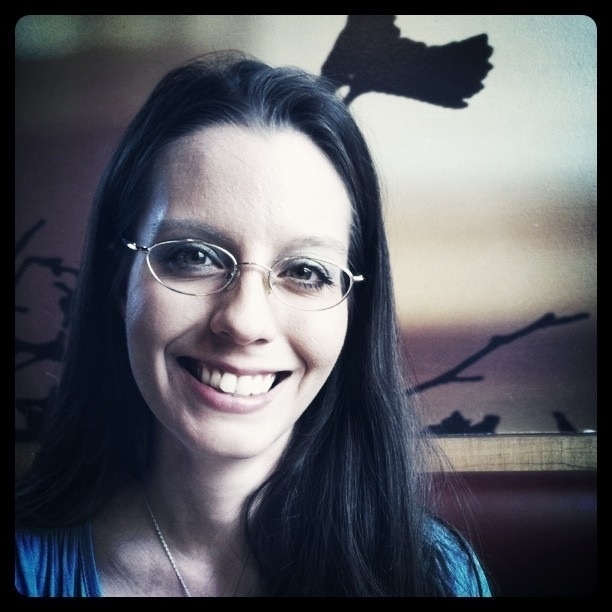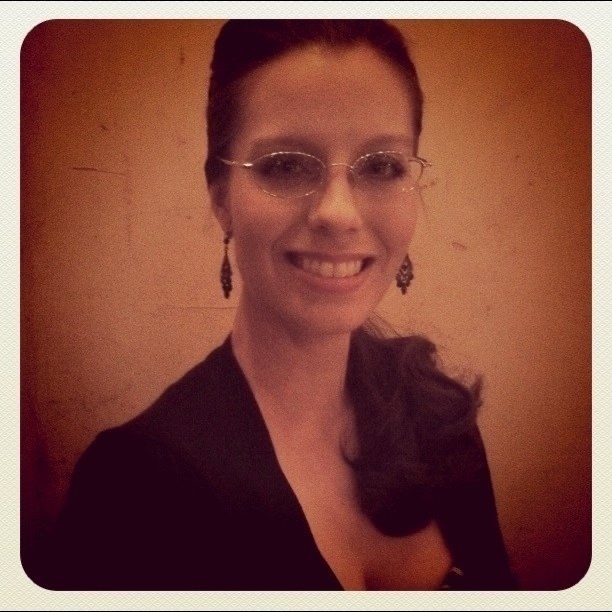A MINOR FRIAR: ADVICE TO THEOLOGY STUDENTS
Equally good for undergraduate majors, graduate students, and those simply interested in theology.
a minor friar: Advice to Theology Students
THE MILQUETOAST RADICALS
David Brooks is so on-point about the fundamental frivolity and illusion of the Occupy Wall Street movement.
The Milquetoast Radicals
REPORTERS, BAPTISTS, ROMNEY & ‘CULTS’
Just can’t recommend GetReligion enough for anyone who wants to make sense of the ways that theological points appear in the news.
(via Instapaper)
Reporters, Baptists, Romney & ‘cults’
BIG PICTURE AT WORLD YOUTH DAY: 'IT’S THE EVANGELICALS, STUPID!'
John Allen’s take on WYD just past.
Big Picture at World Youth Day: 'It’s the Evangelicals, stupid!'
Happy summer evening

THE COMING CLOUD WARS
If Silicon Valley were hosting a basketball tournament for consumer money and mindshare in the cloud, right now we’d be looking at a Final Four of Google, Apple (plus Twitter), Microsoft (plus Facebook) and Amazon (especially if they can make a compelling tablet).
The Coming Cloud Wars
HOW TO LAND YOUR KID IN THERAPY - THE ATLANTIC
The unfortunate roots and bad results of the helicopter parenting I see so much of at school.
How to Land Your Kid in Therapy - The Atlantic
ISRAELITES IN THE ANGLO-SAXON SEA
Fascinating take on Anglo-Saxon religious poetry, referring to this new volume of translations.
Israelites in the Anglo-Saxon Sea
Avatar of sleep

IT’S NOT ABOUT THE IPAD
“The next time you watch a child use an iPad, think about what your knowledge-based toys looked like when you were their age. The iPad is their slide rule; their typewriter; their Commodore 64. As great as the iPad is, it’s more mind blowing to imagine what will soon deprecate it.”
It’s not about the iPad
FR. BARRON ON THE POPE'S NEW BOOK
Fine description of the dynamic between historical-critical and theological interpretation.
(Via Ignatius Insight.)
Fr. Barron on the Pope's new book
OH: JOYS OF TEACHING
Student: So did I miss anything last class?
Teacher: Nope, I awkwardly stared at the class for 50 minutes. But you should stop in next Wednesday, I’m thinking of covering some stuff then.
THE THEOLOGICAL NECESSITY OF AN HISTORICAL INTERPRETATION OF THE BIBLE
Truer words never spoken: “The moment the “Word became flesh” (Jn. 1:14), history became essential to the task of thinking about and proclaiming the good news of the Bible, and it became essential for very theological reasons.”
The Theological Necessity of an Historical Interpretation of the Bible
EIGHT REASONS TO DRINK COFFEE
Is there nothing this wonder beverage cannot do?
Eight reasons to drink coffee
RESEARCH UPENDS TRADITIONAL THINKING ON STUDY HABITS
“psychologists have discovered that some of the most hallowed advice on study habits is flat wrong.” - Click the link to see what does work; you’ll be surprised.
(via Instapaper)
Research Upends Traditional Thinking on Study Habits
PONDERING ISLAM AND ITS DISCONTENTS
Pondering Islam and its discontents: “To put all this into a sound-bite, the church’s approach to interreligious dialogue is moving beyond the tea-and-cookies stage, where the point is simply to be polite to one another. Today a more balanced form of engagement is emerging, which promises more substantive, but also more potentially combustible, conversations.”
Another fine column from John Allen, the one writer who makes NCR worth reading.
Pondering Islam and its discontents
Birthday!

FAITH ABIDES: THE INTELLIGENCE OF BENEDICT XVI | FR. JAMES V. SCHALL, S.J.
Fr. Schall reviews Tracey Rowland on BXVI; not to be missed, and good in the wake of the UK visit to bring home Benedict’s theological vision.
(via Instapaper)
Faith Abides: The Intelligence of Benedict XVI | Fr. James V. Schall, S.J.
HAWKING AND CREATION » FIRST THINGS
Money quote: “In the end, Hawking on theology reminds me of ill-informed fundamentalists and their efforts at creation “science.” There’s no actual interest in a broad engagement with the challenges of understanding, just a mulish push to make what one already understands into the key for understanding everything else.”
Hawking and Creation » First Things
BENEDICT XVI & THE BIBLE
Here’s the conclusion of a longer article from Fr. Lienhard on BXVI’s approach to Scripture. Well worth reading the whole thing.
“The theology of the Bible elaborated by Pope Benedict XVI in the course of almost fifty years might be summarized in ten theses.
The word of God must be approached with sympathetic understanding, a readiness to experience something new, and a readiness to be taken along a new path (cf. God’s Word, 116).
A true understanding of the Bible calls for a philosophy that is open to analogy and participation, and not based on the dogmatism of a worldview derived from natural science (cf. God’s Word, 118).
The exegete may not exclude, a priori, the possibility that God could speak in human words in this world, or that God could act in history and enter into it (cf. God’s Word, 116).
Faith is a component of biblical interpretation, and God is a factor in historical events (cf. God’s Word, 126).
Besides being seen in their historical setting and interpreted in their historical contexts, the texts of Scripture must be seen from the perspective of the movement of history as a whole and of Christ as the central event.
Because the biblical word bears witness to revelation, a biblical passage can signify more than its author was able to conceive in composing it (cf. God’s Word, 123).
The exegetical question cannot be solved by simply retreating into the Middle Ages or the Fathers, nor can it renounce the insights of the great believers of all ages, as if the history of thought began seriously only with Kant (cf. God’s Word, 114 and 125).
Dei Verbum envisioned a synthesis of historical method and theological hermeneutics, but did not elaborate it. The theological part of its statements needs to be attended to (cf. God’s Word, 98-99).
Exegesis is theological, as Dei Verbum taught, particularly on these points: (1) Sacred Scripture is a unity, and individual texts are understood in light of the whole. (2) The one historical subject that traverses all of Scripture is the people of God. (3) Scripture must be read from the Church as its true hermeneutical key. Thus, Tradition does not obstruct access to Scripture but opens it; and, conversely, the Church has a decisive say in the interpretation of Scripture (cf. God’s Word, 97).
Theology may not be detached from its foundation in the Bible or be independent of exegesis (cf. God’s Word, 93).”
(Via Carl Olson.)
FORGET WHAT YOU KNOW ABOUT GOOD STUDY HABITS
Cognitive science revises ideas about studying.
Forget What You Know About Good Study Habits
BXVI & THE FRAGILITY OF REASON
Nice piece by Weigel that puts BXVI’s trip to Britain in context of broader Western Civ. issues
BXVI & the fragility of reason
AYAAN HIRSI ALI: HOW TO WIN THE CLASH OF CIVILIZATIONS
Politically incorrect, but nonetheless accurate: “The greatest advantage of Huntington’s civilizational model of international relations is that it reflects the world as it is—not as we wish it to be.”
Ayaan Hirsi Ali: How to Win the Clash of Civilizations
RAZING GENERATIONAL BASTIONS
Nice updating and reapplication of Balthasar’s thoughts on razing the bastions, from Homiletic & Pastoral Review; good for Gen-X types such as myself to remember!
“Most of the young people I know here at St. Louis University, for example, pray and worship and serve in a “post-dissent” Church… They are not reacting against anything internally within the Church but only outwardly against the alienating harshness of secular modernism.”
Razing generational bastions
BENEDICT XVI ON THEOLOGY
ON “SCIENTIFIC” THEOLOGY
(via Sandro Magister)
Q: Your Holiness, I am Mathias Agnero and I come from Africa, specifically from Côte d’Ivoire. You are a pope theologian, while we, when we are able, read only a few books of theology for formation. It seems to us, nonetheless, that a fracture has been created between theology and doctrine, and, even more, between theology and spirituality. The need is felt for study not to be entirely academic, but to nourish our spirituality. We feel the need for this in pastoral ministry itself. Sometimes theology does not seem to have God at the center and Jesus Christ as the first “theological locus,” but instead has scattered tastes and tendencies; and the result is the proliferation of subjective opinions that permit the introduction, even in the Church, of non–Catholic thought. How can we keep from becoming disoriented in our lives and our ministry, when it is the world that judges faith and not the other way around? We feel “off center!”
A: You touch upon a very difficult and painful problem. There really is a theology that wants above all to be academic, to appear scientific and forgets the vital reality, the presence of God, his presence among us, his speaking today, not only in the past. Saint Bonaventure distinguished two forms of theology in his time; he said: “There is a theology that comes from the arrogance of reason, that wants to dominate everything, to turn God from a subject into an object that we study, while he should be the subject who speaks to us and guides us.”
There really is this abuse of theology, which is arrogance on the part of reason and does not nourish faith, but obscures the presence of God in the world. Then there is a theology that wants to know more out of love for the beloved, is stimulated by love and guided by love, and wants to know more about the beloved. This is true theology, which comes from love of God, of Christ, and wants to enter more deeply into communion with Christ.
In reality, the temptations today are great; above all, the so-called “modern vision of the world” (Bultmann: “modernes Weltbild”) is imposed, which becomes the criterion of what is claimed to be possible or impossible. And so, precisely with this criterion that everything is as it always has been, that all historical events are of the same kind, the very novelty of the Gospel is excluded, the intervention of God is excluded, the true novelty that is the joy of our faith.
What should be done? I would say first of all to the theologians: have courage. And I would also like to express great thanks to the many theologians who are doing good work. There are abuses, we know that, but in all parts of the world there are many theologians who truly live by the Word of God, nourish themselves on meditation, live the faith of the Church and want to help make faith present in our day.
And I would say to theologians in general: “Do not be afraid of this phantasm of the scientific!” I have been following theology since 1946; I began to study theology in January of 1946, and so I have seen almost three generations of theologians, and I can say: the hypotheses that at that time and then in the 1960’s and ‘80’s were the most new, absolutely scientific, absolutely almost dogmatic, in the meantime have become outdated and no longer apply! Many of them appear almost ridiculous. So have the courage to resist what is apparently scientific, not to submit to all the hypotheses of the moment, but really to think on the basis of the great faith of the Church, which is present in all times and gives us access to the truth. Above all, also, do not think that positivistic reason, which excludes the transcendent – which cannot be accessible – is true reason! This weak form of reason, which presents only things that can be experienced, is really an insufficient reason. We theologians must use the greater form of reason, which is open to the greatness of God. We must have the courage to go beyond positivism to the question of the roots of being.
This seems of great importance to me. So, it is necessary to have the courage for grand, broad reason, to have the humility not to submit to all the hypotheses of the moment, to live by the great faith of the Church of all times. There is no majority versus the majority of the saints: the true majority is the saints in the Church, and we must orient ourselves by the saints!
Then, to the seminarians and the priests I say the same thing: consider that the Sacred Scripture is not an isolated book: it is living in the living community of the Church, which is the same subject in all centuries and guarantees the presence of the Word of God. The Lord has given us the Church as a living subject, with the structure of the bishops in communion with the pope, and this great reality of the bishops of the world in communion with the pope guarantees for us the testimony of permanent truth. Let us trust in this permanent magisterium of the communion of the bishops with the pope, who represent to us the presence of the Word; let us trust in the life of the Church.
And then we must be critical. Certainly theological formation – I would like to say this to the seminarians – is very important. In our time, we must know the Sacred Scripture well, partly because of the attacks of the sects; we really must be friends of the Word. We must also know the currents of our time in order to respond reasonably, in order to be able to give – as Saint Peter says – “reasons for our faith.” Formation is very important. But we must also be critical: the criterion of faith is the criterion that we must also use to view theologians and theologies. Pope John Paul II gave us an absolutely sure criterion in the catechism of the Catholic Church: here we see the synthesis of our faith, and this catechism is truly the criterion for seeing where there is an acceptable or unacceptable theology. Therefore, I recommend the reading, the study of this text, and so we can move forward with a critical theology in the positive sense, meaning critical of the fashionable tendencies and open to the true novelties, to the inexhaustible depth of the Word of God, which reveals itself as new in all times, including in our time.